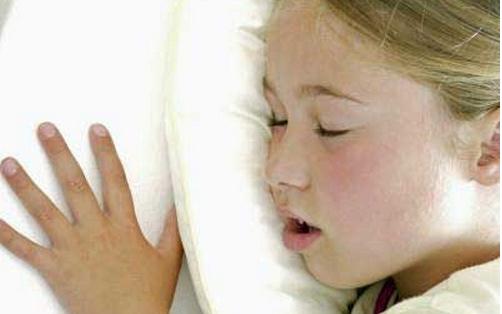Sleep Apnea in Children – Symptoms, Causes, Signs and Treatment
Sleep apnea in children is actually a medical condition which triggers the ability to breathe normally while you are sleeping. It will lead to a pausing of the normal breathing of a child when one has sleep apnea. It is actually a rare medical condition found in children. This is a medical condition which needs to have a medical intervention as much as possible for when it progresses to a chronic form of sleep apnea. Our body needs oxygen, when one has sleep apnea, our body is deprived off the oxygen that it needs.
 Sleep Apnea in Children Symptoms
Sleep Apnea in Children Symptoms
Sleep apnea in children is a major medical condition that needs intervention. In order for the person say that the child has a sleep apnea, the child must manifest the following symptoms:
- Restless sleeping
- Cognitive problems
- Poor attention span
- Enlarged adenoids
- Enlarged tonsils
- Breathing via the mouth
- Poor gaining of weight or losing of weight
- Poor concentration
- Insomnia
- Memory problems
- Growth and development problems
- Hostile
- Hyperactive
- Inattentive
- Decrease performance in school
- Angry
- Irritable
- Snoring
- Nightmares
Sleep Apnea in Children Causes
There are actually a lot of factors which causes children to experience sleep apnea. The following are the factors which causing the medical condition sleep apnea in children:
- Obesity
Obese children are increasing in number according to statistics. The increase of obese children makes them a high risk in experiencing sleep apnea. This is made possible because the fat lining of the airway grows continually as one is obese which results to the narrowing and crowding of the child’s airway passage. Extra weight located just outside of the airway will lead to the application of pressure leading to its collapse and eventually resulting to apnea episodes especially sleep apnea condition.
- Enlargement of the adenoids and tonsils
This is actually the common factor of why children experience sleep apnea. It happens due to the fact, anatomically speaking; there is a narrow passageway of the uppermost part of the airway. Anatomically speaking, the affected parts are the tonsils and the adenoids which are the tissues located at the back portion of the throat and mouth. However, not all children who have enlarged adenoids and tonsils have sleep apnea condition. There are only a small fraction of them who are suffering from sleep apnea and have such anatomical problem present.
- Neuromuscular factors
This happens because there are losses of musculature control especially in the upper airway passage way which lead to the child to experience sleep apnea. Another neuromuscular factor is the changes in the tone of the muscles which can be medically defined as either Hypertonia or hypotonia. Also, when a child has a compressed brainstem, it may also lead to the child to suffer from sleep apnea. In addition to that, according to studies, developmental abnormalities such as Down syndrome are also at risk for such medical condition.
- Abnormalities in the craniofacial aspect
Another cause of sleep apnea in children is the presence of abnormalities in the craniofacial aspect or to put it simply the ones which affect the head and face. One abnormalities is the macroglossia or the presence of enlarge tongue can lead to symptoms of sleep apnea as it will obstructs the passageway of the air.
- Mucopolysaccharidoses
This deals with a rare medical disorder which makes the child at risk to having sleep apnea. This happens because there is accumulation of the large molecules and there is size swelling in the upper airway tissues.
Sleep Apnea in Children Treatment
With regards to the treatment of sleep apnea in children, the following can be done:
- Positive Airway Pressure Machines
- Weight reduction for obese children
- Surgical procedure for those having enlarge adenoids and tonsils
- Pharmacological treatment which is aimed in relaxing the airway such as sedative drug
- Tracheotomy is considered to be the last option for children with sleep apnea; this will aid in the normal breathing of the child.
Sleep Apnea in Children Long Term Effects
Children who are not given proper treatment for their sleep apnea will experience long term effects such as:
- Overweight issues
- Rise in blood pressure
- Unproductive day to day activities
- Prone to accidents
- Depression
- Excessive fatigue episodes
- Memory loss
- At risk for stroke
- Cardiomyopathy
- Diabetes
- Heart attacks
- Arrhythmias
- Congestive heart failure